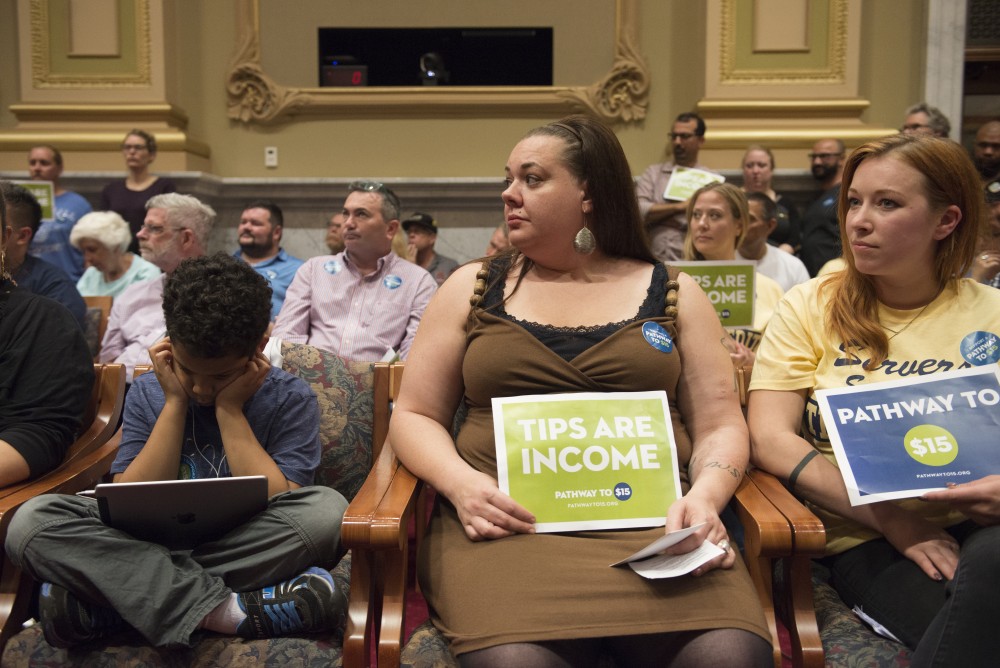The movement toward $15 hourly wage laws in the U.S. has caught the attention of University of Minnesota experts.
After Minneapolis passed an ordinance June 30 to bring the $15 minimum wage by 2024 and two recent studies evaluated Seattle’s climb to $15, several researchers and experts weighed in on what the change could mean for Minneapolis.
Under the law, “large employers” with over 100 employees will start increasing wages in January 2018 and reach $15 hourly by July 2022. Small employers with fewer than 100 will start increasing in July 2018 and reach $15 in July 2024.
Two separate June studies by the University of California, Berkeley and the University of Washington presented opposing views on the effect of Seattle’s minimum wage hike.
The Berkeley study, which had a favorable view of the Seattle wage hike’s results, looked at Seattle’s food service industry and found the law did not result in the job loss as some feared.
Meanwhile, the University of Washington study said Seattle low-wage workers lost earnings because they were employed fewer hours after the wage increased, leading low-wage employees to lose $125 per month compared to 2016.
Ekaterina Jardim, a post-doctoral research associate with the Washington study, said while the study’s results cannot be applied directly to Minneapolis, they are “more of a cautionary tale to other cities.”
Jardim said the next step for researchers is to see what groups of people benefit and lose out from Seattle’s wage hike.
Michael Reich, a Berkeley economics professor and researcher on the study, said wage hikes can also have unintended side effects.
Reich said when cities hike wages instead of states, the cities lose wealth because those seeing the pay raise may not live and spend money in the city.
Hypothetically, Reich said Minneapolis may not see the increased consumer spending a wage hike would cause.
When the minimum wage doesn’t increase for a long time, the hike has to be significant to be meaningful, said John Budd, Carlson School of Management professor and director of the University’s Center for Human Resources and Labor Studies, in an email.
When the changes are significant, opponents worry about cuts to employment, Budd said in the email, and gradual increases in minimum wages are better but require bipartisan support.
Lucas Franco, a University political science PhD candidate, said as Americans have sorted into Democratic-dominated cities and Republican-dominated rural areas, “cities have really been this experimental engine of progressive policy reform.”
Jack Reardon, a Hamline University economics professor who works to re-examine economics, said the issue should be framed in terms of giving ordinary people a wage they can live on.
Based on the cost of living, $15 isn’t a great wage, Reardon said, but it’s a decent wage.
Reardon said the wage is one way of stimulating the economy, but there are other ways to do it, like investing in infrastructure and renewable energies, he said.
Aldo Rustichini, a University economics professor, said in an email the Minneapolis City Council should acknowledge the $15 minimum wage is controversial and launch an assessment of its effects here.
According to Minneapolis’ minimum wage law, the city will write two reports a year starting in 2019. One will evaluate how the law is implemented, while the other will focus on economic and market impacts with data on jobs and earnings and rates of business openings and closures.
“In five years there might be, according to the results, opportunity to celebrate a success,” Rustichini said in the email. “Or to provide remedies for yet another social engineering project gone bad.”








